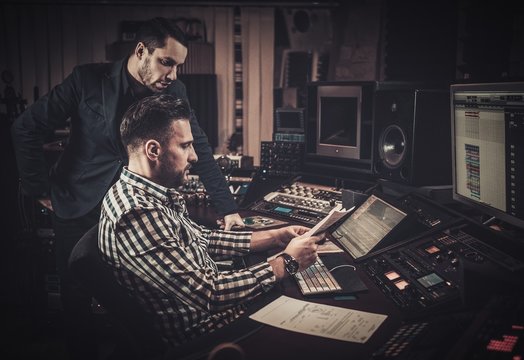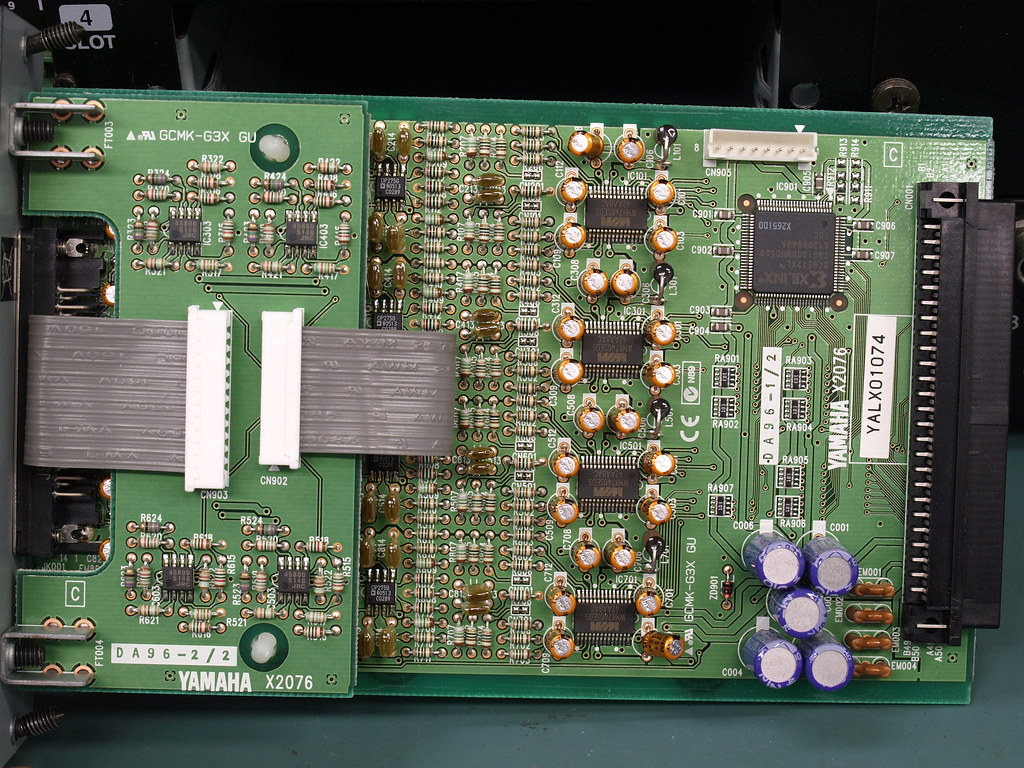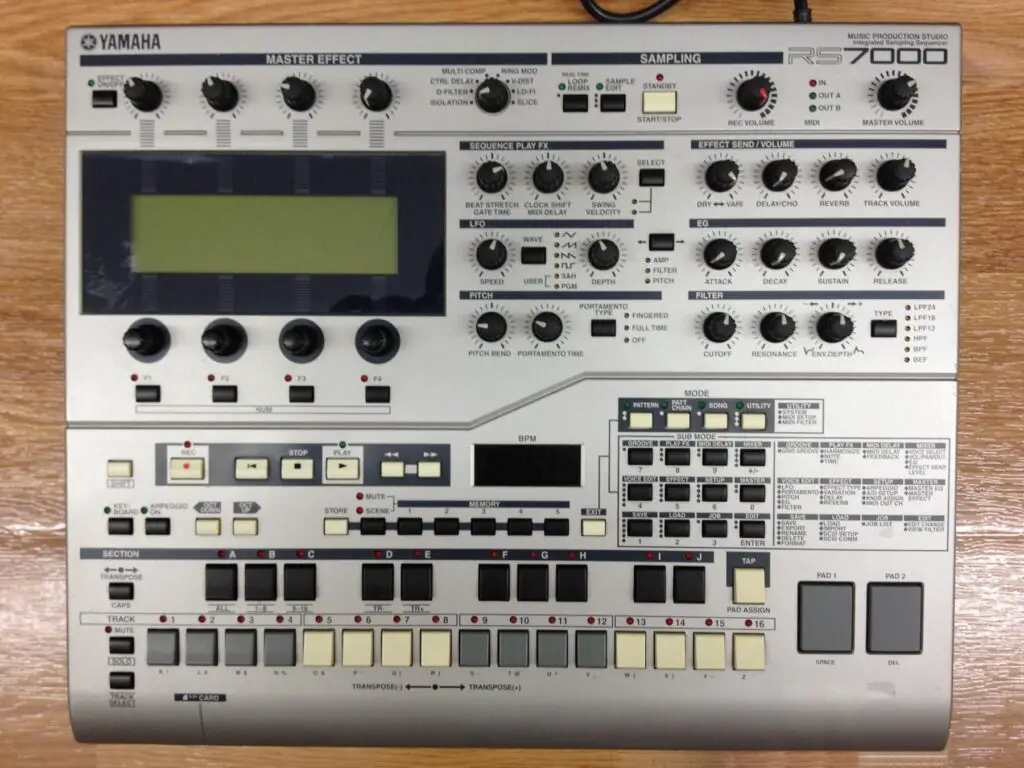Music production is a complex and fascinating field that requires a mix of technical skills, creativity, and business acumen. Yet, for many aspiring music producers, the path to success can seem daunting and unclear. With so many different roles and job titles in the industry, it’s hard to know which one is the best fit or how to get started. In this blog post, we’ll demystify some of the most common music production positions and shed light on what it takes to succeed in each one. Whether you’re a seasoned producer looking to branch out or a newcomer trying to find your place in this exciting industry, read on for insights and inspiration!
Table of Contents

Introduction: Understanding the Music Production Industry
Music production positions are vital in the creation of high-quality music recordings. The industry relies on a team of professionals with specific skills to bring out the best in every track. Understanding their roles and responsibilities is critical for anyone looking to break into this field. In today’s fast-paced music industry, it is no longer enough to be just an artist or musician; music production positions have become a crucial part of the creative process. They range from recording engineers who capture sound and mixing engineers who blend tracks together, to mastering engineers responsible for polishing and enhancing the final product. Each position requires a different set of skills, but all must work together seamlessly to create something exceptional that resonates with listeners worldwide.

The Different Music Production Positions Explained
Music production is a collaborative process that involves various professionals to create high-quality recordings. Each person plays a unique role and has their own expertise. Music producers oversee the entire recording process from start to finish, ensuring that everything runs smoothly and within budget. They provide creative direction and work with artists to achieve their vision while also managing schedules and budgets.
A mixing engineer takes care of balancing the levels of different tracks, adding effects, and creating a cohesive sound mix for the final product. They work together with the producer or artist to achieve the desired sound quality before it moves on for mastering.
On another hand, mastering engineers are in charge of producing audio masters which will be used as source material for duplication copies such as CDs or digital downloads. Recording Engineers capture sounds using microphones placed in specific areas of an environment where instruments are played or vocals sung; working closely with mixing engineers to ensure each track is recorded at its best quality possible.
Finally, studio managers handle all logistical aspects including scheduling bookings, maintaining equipment inventory lists so they can have better control over what needs replacing when needed etcetera – generally making sure everyone knows where things are located within if anything goes wrong during sessions!

The Role of a Music Producer in the Recording Process
A music producer is the person who oversees the entire recording process. They are responsible for guiding the artist through the recording process, selecting the right songs, and making sure that everything runs smoothly. The producer also works closely with the recording engineer to ensure that the sound quality is top-notch. They may also be involved in arranging and composing music, as well as providing creative input on how a song should sound. A good producer is able to bring out the best in an artist and help them achieve their vision for their music. It’s important for a producer to have excellent communication skills, as they will be working closely with artists, engineers, and other professionals in the industry.

The Importance of a Mixing Engineer in Music Production
A mixing engineer is a vital component in the music production process. They are responsible for balancing and blending all of the different elements in a track, such as vocals, instruments, and effects. The goal of a mixing engineer is to make sure that every sound occupies its own space within the mix while still working together harmoniously. This requires technical expertise as well as an ear for artistry and creativity.
Mixing engineers work closely with music producers to achieve their vision for the final product. They may use specialized equipment such as compressors, equalizers, or reverbs to help enhance particular sounds or correct any flaws in recording quality. Additionally, they must have strong communication skills to effectively convey ideas and collaborate with other members of the team. Without a skilled mixing engineer on board, even the best recordings can fall short when it comes time for release.
The Art of Mastering: What Does a Mastering Engineer Do?
Mastering Engineer is the person who ensures that the final mix sounds polished and professional. They use specialized equipment to balance and enhance different sonic elements in a complete album or track. As an expert in audio post-production, they work with the finished stereo mixes of recordings before duplication. During enhancing, mastering engineers control critical aspects such as EQ, dynamics, level matching, and sequencing among others. They also ensure all songs on a project have consistent loudness levels for radio play or streaming services like Spotify without sounding overcompressed regardless of genre diversity. Mastering is an integral part of music production; it makes sure that each element shines accurately and provides listeners with the intended emotional experience while ensuring compatibility across multiple playback platforms from consumer earbuds to pro sound systems at clubs or festivals.

The Job of a Recording Engineer: Capturing the Perfect Sound
Recording engineers are responsible for capturing high-quality sound recordings during the recording process. They work closely with music producers and artists to ensure that every instrument and vocal is recorded precisely as intended. This position requires technical expertise in using different types of microphones, preamps, and other equipment necessary in a recording studio setup.
A recording engineer must have excellent listening skills to identify any errors or issues in the recordings. Attention to detail is critical when it comes to ensuring that every aspect of a song’s performance is captured accurately since even minor mistakes can ruin an entire record.
In addition to technical knowledge, successful recording engineers possess creative instincts to develop unique sounds suitable for each artist they work with. Some responsibilities include setting up equipment before recording sessions begin, making sure all instruments are properly tuned, and evaluating tracks after each take. A good recording engineer knows how important their role was in capturing quality audio behind-the-scenes!

Understanding the Role of a Studio Manager in Music Production
A studio manager is responsible for the day-to-day operations of a recording studio. They oversee the studio’s schedule, manage equipment and supplies, and ensure that all staff members are working efficiently. A good studio manager must have excellent organizational skills and be able to multitask effectively. They should also have a deep understanding of the music production process and be able to communicate effectively with clients, producers, engineers, and other staff members. In addition to managing the studio’s operations, a studio manager may also be responsible for marketing and promoting the studio’s services to potential clients. This may involve creating promotional materials, attending industry events, and networking with other professionals in the music industry. Overall, a skilled studio manager is an essential part of any successful recording studio team.

Breaking into the Music Production Industry: Tips and Tricks
Networking is essential in any industry, but in music production, it can make all the difference. Attend industry events, meet people online through social media or forums, and build relationships with other professionals.
Another important aspect of breaking into music production is gaining relevant experience. Offer to intern at a studio or shadow an established producer to gain hands-on experience. Building a portfolio of work will demonstrate your skills to potential employers.
It’s also crucial to stay up-to-date on advancements in technology and techniques used in music production. Joining organizations like the Audio Engineering Society can provide access to educational resources and opportunities for networking.
Most importantly, be persistent and keep learning. It takes time and effort to break into the music production industry, but with dedication and hard work, you can achieve success as a producer or engineer.

Conclusion: Choosing the Right Music Production Position for You
When it comes to choosing a career in the music production industry, finding the right position for you is crucial. It’s important to evaluate your strengths and interests before deciding on a specific job title. Consider factors such as whether you enjoy working with technology, collaborating with others, or being in charge of a project from start to finish.
Another key factor when breaking into the music production industry is networking – taking advantage of every opportunity to connect with other professionals in the field. Attend conferences and workshops, join online forums, and be active on social media platforms.
Lastly, don’t be afraid to start small and work your way up the ladder. Many successful music producers started out as interns or assistants before moving onto higher positions. With dedication and hard work, anyone can succeed in this exciting field!
In conclusion, the music production industry offers a wide range of exciting and rewarding career opportunities for those with a passion for music and a desire to create great sound. Whether you’re interested in producing, mixing, mastering, recording, or managing a studio, there’s a position out there that’s perfect for you. By understanding the different roles and responsibilities of each position, you can make an informed decision about which path to pursue. So don’t be afraid to explore your options and take the first step towards your dream career in music production today! And if you want to learn more about this fascinating industry, be sure to check out our other content for valuable insights and tips.


